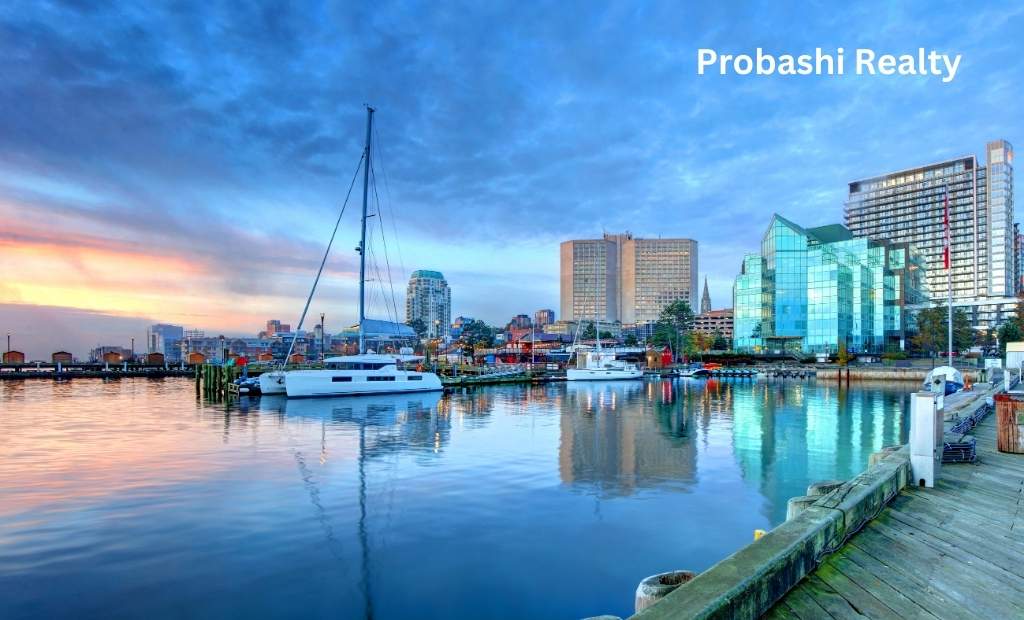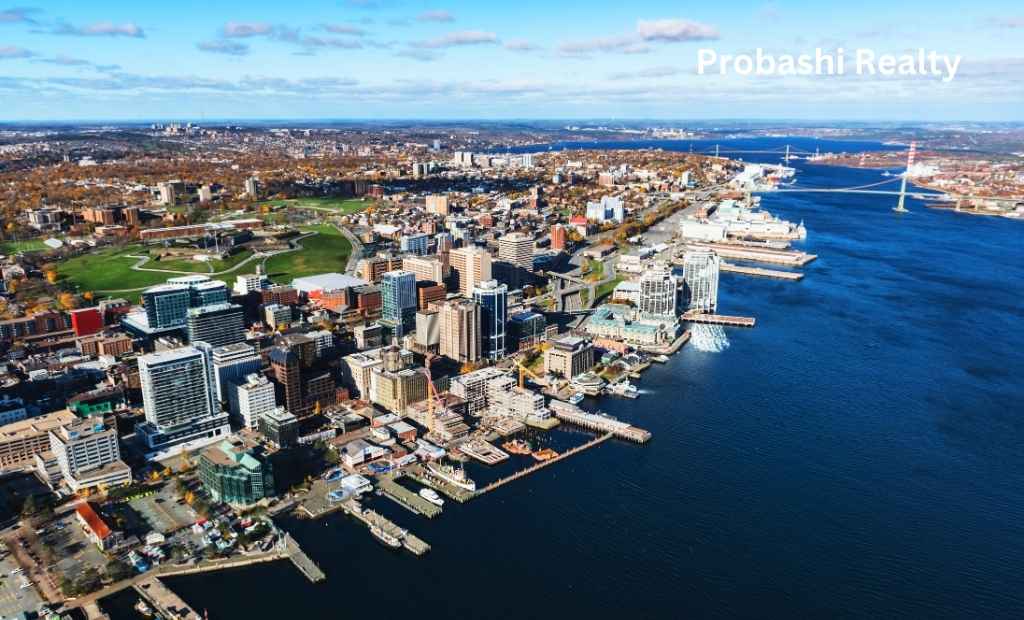Halifax, officially known as Halifax Regional Municipality (HRM), is the capital of Nova Scotia, Canada. It is a vibrant coastal city rich in history, culture, and natural beauty. Here’s an in-depth overview of Halifax:
Geography and Climate
- Location: Halifax is situated on the eastern coast of Canada, along the Atlantic Ocean. The city is built around one of the world’s largest natural harbors.
- Climate: Halifax has a humid continental climate, characterized by mild summers and relatively mild winters compared to other Canadian cities. Average temperatures range from -5°C (23°F) in January to 19°C (66°F) in July.
History
- Founding: Halifax was founded in 1749 by British settlers as a military and naval base.
- Role in Canadian History: The city played a pivotal role during the World Wars and served as a key gateway for immigrants arriving in Canada.
- Historic Tragedy: The Halifax Explosion of 1917, one of the largest non-nuclear explosions in history, devastated much of the city but led to significant rebuilding and development.
Demographics
- Population: As of 2023, Halifax has a population of approximately 450,000, making it the largest city in Atlantic Canada.
- Diversity: Halifax is known for its multicultural community, with significant populations of African Nova Scotians, Indigenous peoples, and recent immigrants from around the world.
Economy
- Industries: The economy is driven by sectors such as shipping, defense, technology, education, healthcare, and tourism.
- Port of Halifax: One of North America’s busiest and deepest ports, it plays a critical role in international trade.
- Tourism: With its historic sites, festivals, and coastal attractions, Halifax is a major tourist destination.
Education
- Universities: Halifax is home to several prestigious institutions, including:
- Dalhousie University
- Saint Mary’s University
- Mount Saint Vincent University
- Nova Scotia Community College (NSCC)
- Student Population: The city has a significant student population, contributing to its vibrant and youthful atmosphere.
Culture and Lifestyle
- Historic Sites: Key landmarks include the Halifax Citadel, Pier 21 (Canada’s Immigration Museum), and the Maritime Museum of the Atlantic.
- Festivals: Halifax hosts numerous events, such as the Halifax International Busker Festival, the Atlantic Film Festival, and Nocturne: Art at Night.
- Music and Arts: The city has a thriving arts scene, with a strong focus on music, theatre, and local crafts.
Natural Attractions
- Halifax Waterfront: A bustling area with shops, restaurants, and scenic views of the harbor.
- Parks: Point Pleasant Park and the Halifax Public Gardens are popular green spaces.
- Beaches and Coastal Areas: Nearby attractions include Peggy’s Cove, Lawrencetown Beach, and the scenic Cabot Trail.
Real Estate Market
- Housing Options: The market offers a mix of single-family homes, townhouses, condos, and waterfront properties.
- Affordability: While more affordable than cities like Toronto or Vancouver, Halifax has seen rising home prices due to population growth and demand.
- Rental Market: A growing demand for rental properties is driven by students, young professionals, and newcomers.
Investment Opportunities
- Real Estate: Strong demand for rental properties, student housing, and waterfront developments.
- Technology: Growing tech sector with opportunities in startups and ocean innovation.
- Tourism: Investments in hotels, restaurants, and cultural attractions benefit from a vibrant tourism industry.
- Renewable Energy: Expanding projects in wind, solar, and tidal energy.
- Shipping and Logistics: Opportunities tied to the Port of Halifax, a major trade hub.
- Education: High demand for student accommodations and education-related ventures.
- Affordable Market: Lower entry costs compared to larger cities, with strong growth potential.
- Government Incentives: Tax benefits and funding for innovation and green projects.
Transportation
- Public Transit: Halifax Transit operates buses and ferries, connecting various parts of the city and surrounding areas.
- Airport: The Halifax Stanfield International Airport provides domestic and international flights.
- Harbor Ferries: A unique feature of Halifax’s transit system, connecting Downtown Halifax with Dartmouth.
Government
- Municipality Structure: Halifax Regional Municipality (HRM) encompasses several communities, including Halifax, Dartmouth, Bedford, and surrounding rural areas.
- Governance: The city is governed by a mayor and a regional council. As of 2023, the mayor is Mike Savage.
Challenges and Opportunities
- Housing Affordability: Rising home prices and rental demand pose challenges for affordability.
- Economic Diversification: While traditional industries remain strong, there’s a focus on growing sectors like technology and green energy.
- Climate Change: Being a coastal city, Halifax faces risks related to rising sea levels and extreme weather events.
Future Outlook
- Population Growth: Halifax continues to attract newcomers, thanks to its affordability, job opportunities, and quality of life.
- Sustainability Initiatives: The city is investing in green infrastructure, renewable energy, and sustainable urban development.
- Cultural Renaissance: Halifax’s arts and cultural scene is expected to grow, further enhancing its appeal as a vibrant Atlantic hub.
Halifax combines historic charm, modern amenities, and breathtaking coastal landscapes, making it an attractive place to live, work, and visit. Its blend of small-town friendliness and big-city opportunities sets it apart as one of Canada’s most unique and dynamic cities.



